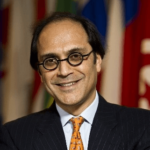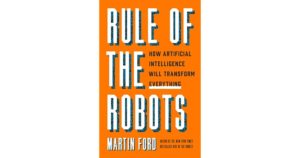Events
Upcoming Events
Featuring timely discussions with industry executives and academics on business, macroeconomic, and societal questions related to digital. Stay tuned for upcoming events or join our mailing list.
Digital Leadership Series

BHASKAR CHAKRAVORTI is the Dean of Global Business at The Fletcher School of Law & Diplomacy at Tufts University, the founding Executive Director of Fletcher’s Institute for Business in the Global Context and founder and chair of Digital Planet, one of Fletcher’s flagship research programs.
He is also the Chairman of the Advisory Board to the Mastercard Policy Center for the Digital Economy, served on the Global Future Council on Innovation for the World Economic Forum and was Nonresident Senior Fellow at the Brookings Institution, Senior Advisor for Digital Inclusion at the Mastercard Center for Inclusive Growth, a Senior Fellow at the Centre for Social and Economic Progress, an Advisory Board member for the Indian Institute of Public Policy and served on the Advisory Board of the UNDP’s Center for Private Sector in Development. He was a consultant to the World Bank on digital development.
Prior to joining Fletcher, Bhaskar was a Partner of McKinsey & Company, a Distinguished Scholar at MIT’s Legatum Center for Development and Entrepreneurship and on the faculty of Harvard Business School and Harvard University Center for the Environment. He is the author of the Amazon best-selling book, “The Slow Pace of Fast Change: Bringing Innovations to Market in a Connected World” (Harvard Business Press). His latest book, co-edited with Joel Trachtman, is “Defeating Disinformation” (Cambridge University Press). His papers and articles appear in top-tier academic journals, multiple books and in widely-read media, e.g., Harvard Business Review, New York Times, Wall Street Journal, Financial Times, Washington Post, Foreign Policy, Bloomberg, Indian Express, among many others.
Bhaskar’s prior appointments were as a Partner and Thought Leader at the Monitor Group, a game theorist at Bellcore (formerly Bell Labs), assistant professor at the University of Illinois at Urbana- Champaign and TAS. His PhD in economics is from the University of Rochester, where he was a University Fellow. He is a graduate of the Delhi School of Economics and in economics with honors from Delhi University’s St. Stephen’s College.
Join CDT Director Vijay Gurbaxani in a conversation with Professor Bhaskar Chakravorti, Dean of Global Business at the Fletcher School of Law & Diplomacy at Tufts University, to discuss AI’s potential effects on social inequities and the steps that business leaders should take to mitigate them.
AI acceleration will make societies’ existing inequities even worse, and it can erode trust in AI, deter widespread adoption, and limit the technology’s productivity benefits. This can be a difficult problem to fix. For one, the inequality is created not by a single societal fracture, but many. Two, regulation and policy interventions are being deprioritized. Businesses — both AI producers and adopters — must find their own alternative solutions to fill the policy gap. Solutions may be left to companies whose leaders take on the responsibility. The good news is that company leaders can act to mitigate the risks. Professor Chakravorti will argue that they must consider six different “divides” caused by AI and, in each, consider key levers to effect change: technologies, institutions and markets.

Digital IQSeries — Coming Soon
Past Events

Understanding DeepSeek and Open Source Frontier Models
Tuhin Srivastava
CEO / Co-Founder
Baseten


Unlocking Growth with Data & AI: 10 Key Strategies to Scale AI in Your Enterprise
Prachi Priya
AI Advisor, Chief Data & Analytics Officer

The Economic Impact of Generative AI
Dr. Michael Chui
Co-author of the report and Partner
McKinsey Global Institute

Achieving Shared Prosperity in the Age of AI
Simon Johnson
Professor of Entrepreneurship
MIT Sloan School of Management

The Future of Attention: Reframing our Digital Lives to Promote Wellbeing
Gloria Mark
Chancellor’s Professor Department of Informatics
University of California Irvine

ChatGPT: The Good, the Bad, and the Ugly of Generative AI
Vibhanshu Abhishek
Associate Professor of Information Systems
The Paul Merage School of Business, University of California Irvine

The Abundant Univeristy: Remaking Higher Education for a Digital World
Michael D Smith
Professor of Information Technology and Marketing
Heinz College and Tepper School of Business at Carnegie Mellon University

Confronting Reality in Cyberspace: Foreign Policy for a Fragmented Internet
Nicole Perlroth
Reporter of Cybersecurity and Digital Espionage
Adam Segal
Ira A. Lipman Chair, Director

Free Speech, Platforms & The Fake News Problem
Marshall Van Alstyne
Professor, Boston University’s Questrom School of Business
Digital Fellow at the MIT Initiative

Rule of the Robots: How Artificial Intelligence Will Transform Everything
Martin Ford
Author
Futurist and Leading Expert on Artificial Inteligence & Robotics

The AI Awakening: What It Means For Productivity And Business Performance
Erik Brynjolfsson
Director
Stanford Digital Economy Lab

Advancing Diversity, Equity And Inclusion In The Tech Workplace
Rashmi Kumar
SVP and Chief Information Officer
HP Enterprise

Building and Managing a Distributed Workforce featuring Jeetu Patel, EVP & GM, Security & Collaboration at Cisco
Jeetu Patel
Executive Vice President & General Manager, Security & Collaboration
Cisco
This Is How They Tell Me the World Ends: The Cyberweapons Arms Race
Nicole Perlroth
Reporter of Cybersecurity and Digital Espionage
The New York Times


Digital Transformation in a Pandemic: What Companies are Doing and How Government Policy Should Adapt
Victoria Espinel
President & CEO
BSA | The Software Alliance

The Hype Machine: How Social Media Disrupts Our Elections, Our Economy, and Our Health
Sinan Aral
Director, MIT Initiative on the Digital Economy
MIT Sloan School of Management


Designed for Digital: How to Succeed in the Digital Economy
Jeanne Ross
Principal Research Scientist
MIT Sloan Center for Information Systems Research


Building API Strategy for the Smart Enterprise
Pranav Parekh
Head of Customer Success for Apigee
Google Cloud


A Breakthrough Approach to Your Most Vexing Problems at Work and in Life
Hal B Gregersen
Executive Director
MIT Leadership Center

The Emergence of Cyber-Physical, and What it Means to Safety and Security
Phil Quade
CISO/Technology Futurist/Evangelist
CISCO

The Digital Matrix
N. Venkat Venkatraman
David J. McGrath Jr. Professor
Boston University Questrom School of Business
Digital IQ Series

TUHIN SRIVASTAVA has been working in the tech industry since 2009. Tuhin began their career as an investment banker at Macquarie Group in 2009. Tuhin then moved on to machine learning roles at Skulpt and Gumroad. In 2015, they became the Co-Founder of Shape. In 2019, they became a Member of South Park Commons and the Co-Founder of Baseten. Currently, they are the co-founder of Baseten, a company that makes going from trained models to production-grade applications quick and easy. Tuhin has raised $20m from Greylock and South Park Commons and works with industry-leading teams like Patreon, Pipe, and Motive.
Join CDT Senior Industry Fellow and UCI Chief Digital Officer Tom Andriola in a conversation with Tuhin Srivastava, CEO and co-founder of Baseten, on how organizations should approach the potential use of open source frontier models.
This discussion will explore the transformative impact of DeepSeek on AI development, how open-source frontier models might affect innovation, and the considerations of integrating open source models into enterprise infrastructures. Mr. Srivastava will also address critical issues such as competitive differentiation in an open-source landscape, navigating regulatory and security risks, and the evolving dynamics between open-source AI and industry giants. Don’t miss this opportunity to gain valuable insights into a very recent development for AI and its implications for your organization.
Digital IQ Series

DR. SHARON ZHOU is the co-founder and CEO of Lamini, which has won this year’s VentureBeat Gen AI Startup Award and has been recognized as a Forbes Cloud 100 Rising Star. As a former faculty member at Stanford, she led a research group and published award-winning papers in generative AI. Sharon teaches some of the most popular AI courses on Coursera, including Fine-tuning LLMs, reaching nearly a million professionals. She earned her PhD in AI from Stanford, where she was advised by Dr. Andrew Ng. Before her PhD, she worked as an ML product manager at Google. She received her bachelor’s degree in computer science and Classics from Harvard. Additionally, Sharon has served as an AI advisor in Washington, D.C., and has been featured in MIT Technology Review’s 35 Under 35 list.
Join CDT Director Professor Vijay Gurbaxani in a conversation with Dr. Sharon Zhou, CEO of Lamini AI, to break down the use of large language (LLM) models.
The majority of enterprises are still in the early implementation phase of LLM adoption maturity. They have some shallow LLM applications in production, but still haven’t unlocked the highest value use cases from their AI initiatives. In this session, we’ll discuss why enterprise adoption is lagging behind current AI capabilities, why accuracy matters and how it underpins agentic workflows, and how enterprise leaders can help their organizations mature in their AI practice.
Digital IQ Series

PRACHI PRIYA is a globally recognized thought leader, strategic advisor and keynote speaker who excels in launching and scaling data, and artificial intelligence (AI) capabilities for top-tier organizations. With over 20 years of expertise, she is renowned for leveraging data & AI to drive cross-functional transformations, accelerate business growth, and deliver superior customer-centric outcomes.
Prachi is a change agent and spearheaded data-driven transformations across diverse industries such as financial services, retail, automotive, tech, healthcare, consumer electronics, manufacturing and hospitality.
In her most recent role as Chief Data Officer at Team One of Publicis Groupe, Prachi was instrumental in fostering business value through strategic data and AI utilization. Serving as a change agent and champion, Prachi created a center of excellence, by bringing together advanced data and analytics capabilities fused with deep customer insights and storytelling, laser-focused on driving customer-centricity and business growth.
Previously, she held various leadership roles at global firms such as Wunderman Thompson, UnitedHealthcare, Lifetime Fitness and Ogilvy, where she helped accelerate business growth and transformed cultures, embedding analytics as part of the organization’s DNA.
Prachi is very active in the data community with podcast features, keynote presentations and panel discussions. Her accolades include DataIQ Top 100 Innovators, Top 50 AI Leader, and CDO Magazine Data Power Women.
Prachi currently serves as an advisory board member of Salesforce Data Leadership Collective (DLC), Modal, SMU, and I-COM, where she promotes the responsible and ethical use of data and AI and develops best practices. She is also passionate about encouraging diversity and mentoring the next generation, educating high school & college students about data and AI.
CDT Director Professor Vijay Gurbaxani joined in conversation with renowned AI Advisor and Chief Data & Analytics Officer, Prachi Priya, for a strategic deep dive into how Data and AI can be the catalysts for unprecedented business growth.
This webinar moves beyond the hype and delivers a pragmatic blueprint for integrating AI into your enterprise strategies. Ms. Priya dissects the 10 key strategies required to prepare your organization for AI-driven growth, focusing on data maturity models, foundational readiness, followed by a clear, actionable blueprint to revamp and scale AI in your enterprise.
Ms. Priya’s talk includes:
- Organizational Data Maturity Framework
- Are you Ready for AI? Foundation Signals
- Strategic Framework to Scale AI and Future-Proof Your Enterprise Transformation
Digital Leadership Series

Dr. Michael Chui
Co-author of the report and Partner at McKinsey Global Institute
Dr. Michael Chui is a partner at the McKinsey Global Institute (MGI), McKinsey’s business and economics research arm. He leads research on the impact of disruptive technologies and innovation on business, the economy, and society. As a McKinsey consultant, Michael served clients in the high-tech, media, and telecom industries on strategy, innovation and product development, IT, sales and marketing, M&A, and organization. Michael is a frequent speaker at major global conferences, and his research has been cited in leading publications around the world. Prior to joining McKinsey, Michael served as the first chief information officer of the city of Bloomington, Indiana, and the founder and executive director of nonprofit Internet coop HoosierNet, Inc.

Generative AI has taken the world by storm. Economists expect the technology to contribute to global GDP and productivity growth. How big will the effects of generative AI be? And what will firms have to do to realize the potential?
The McKinsey Global Institute has published The Economic Potential of Generative AI: The Next Productivity Frontier, which highlights generative AI’s potential trillion-dollar impact on the global economy, the industries that will draw the biggest value from generative AI, and what these implications mean for the workforce at large.
Digital Leadership Series

Simon Johnson
Professor of Entrepreneurship at the MIT Sloan School of Management
In 2007-08 he was chief economist at the International Monetary Fund, and he currently co-chairs the CFA Institute Systemic Risk Council. In February 2021, Johnson joined the board of directors of Fannie Mae. Johnson’s most recent book, with Daron Acemoglu, Power and Progress: Our Thousand-Year Struggle Over Technology and Prosperity, explores the history and economics of major technological transformations up to and including the latest developments in Artificial intelligence.

In his new book Power and Progress: Our Thousand-Year Struggle Over Technology and Prosperity, MIT economist Simon Johnson (and co-author Daron Acemoglu), take a sweeping look across one thousand years of technological progress and find that past transformations like the agricultural and industrial revolutions did not automatically lead to shared prosperity. Rather, they benefited a narrow swathe of interests. As key decision-makers in how AI is deployed – whether used to replace or augment human capabilities – business leaders and policy makers play a critical role in determining whether we achieve shared prosperity. In a conversation with Center Director Vijay Gurbaxani, Professor Johnson shared the key insights from his book, highlighting impediments to shared prosperity in prior technology revolutions, and the changes to business and regulatory contexts that we should make to achieve equitable growth in the age of AI.
Digital Leadership Series

Gloria Mark
Chancellor’s Professor Department of Informatics at UCI
Gloria Mark received her PhD from Columbia University in psychology. She has been a visiting senior researcher at Microsoft Research from 2012-2020. She works in the area of human-computer interaction (HCI) and her primary research interest is in understanding the impact of digital media on people’s lives.
She studies digital media use in real-world environments using sensors combined with other methods. She is also interested in the future of work, and how teams adapt to remote work environments. She has published over 200 articles.

A main goal in knowledge work has been to maximize productivity; Dr. Mark will reframe that goal, especially for managers and team leaders, to instead optimize employee wellbeing. She will discuss research that shows that when feeling positive, people can do more. She will show how our attention spans on our screens have measurably diminished over the last twenty years. This type of attention-shifting among activities, or multitasking, harms our performance and causes stress. The reasons for our shortening attention spans are far broader than just dealing with external distractions—Dr. Mark will discuss how reasons for it can be tied to workplace environments and the broader sociotechnical world we live in. She will also describe how, contrary to the idea that we are either focused or unfocused, our attention is far more nuanced. We have rhythms of focused attention throughout the day, but we also experience other types of attention which can provide benefits. Dr. Mark will then outline a path forward with solutions at the individual and collective levels for how we can attain agency over our behaviors to achieve greater wellbeing when we use our devices
Digital IQ Series

Vibhanshu Abhishek
Associate Professor of Information Systems the Paul Merage School of Business, University of California – Irvine
The Center for Digital Transformation is excited to announce the launch of Digital IQ, a new virtual seminar series focused on demystifying and explaining exciting new technologies to members of our community. Each event will feature a knowledgeable expert who will raise our digital IQ by helping us understand the promise and risks of emerging technologies.
Our first event will feature Merage Professor Vibs Abhishek sharing his expertise on Generative AI, the technology underlying ChatGPT, perhaps the first AI technology to go viral.
Talk Description
ChatGPT has taken the world by storm, and in just a few short weeks it has skyrocketed to more than 100 million users. ChatGPT has been used to write children’s books, advertising copy, and even pass a Wharton exam. In this talk, we will learn about the core technology, Large Language Models, that power ChatGPT-like technologies, where they work and where they fail, sometimes miserably! We’ll also see how the broader set of Generative AI tools work to produce images, videos, voiceovers and even proteins. This talk will shed light on why it is one of the most powerful and “useful” inventions of our time. The implications of these advances are far-reaching and we’ll tease out how they can impact fields as diverse as healthcare and literature.
Digital Leadership Series

Professor of Information Technology and Marketing, Heinz College and Tepper School of Business at Carnegie Mellon University
Biography >

Over the past 20 years, new information technologies have transformed nearly every sector of the global economy, upsetting the market power of firms and creating abundant choice, interactivity, and personalization for customers. For a long time, the one sector remarkably absent from this transformation was higher education. In this talk, Professor Smith will discuss why higher education has been able to resist the forces of digital transformation that have altered so many other industries, why current market forces make higher education ripe for disruption, how disruption might impact structure and competition in the market for higher education, and what opportunities disruption could create for digitization research.
Digital Leadership Series

Nicole Perlroth
Cybersecurity Expert and Advisor at Cybersecurity and Infrastructure Security Agency
Biography >

Adam Segal
Ira A. Lipman Chair in Emerging Technologies & National Security and Director, Digital and Cyberspace Policy Program, CFR
Biography >

The early advantages the United States and its allies held in cyberspace have largely disappeared as the internet has become increasingly fragmented, more dangerous, and less free, according to a new Independent Task Force report sponsored by the Council on Foreign Relations (CFR). In this talk, CFR Senior Fellow and Task Force Director Adam Segal and cybersecurity expert and Task Force Member Nicole Perlroth discuss the implications of the end of the global internet era, the value of building a trusted internet coalition with U.S. allies, and other findings and recommendations from the report Confronting Reality in Cyberspace: Foreign Policy for a Fragmented Internet.
Digital Leadership Series

Marshall Van Alstyne
Professor, Boston University’s Questrom School of Business
Digital Fellow at the MIT Initiative
Biography >

The spread of misinformation is ancient, complex, yet ubiquitous in media concerning elections, vaccinations, and global climate policy. Digital platforms have exacerbated the problem. How should a platform or a society address the problem of fake news? Join us for a stimulating conversation on this critical topic as Marshall Van Alstyne discusses his new publication, “Free Speech, Platforms & The Fake News Problem.”
Marshall Van Alstyne is an expert on platform strategies and network business models. His research impact ranks among the top 2% of all scientists globally. He was named in the Top 50 Management Thinkers in the World (2021) and is coauthor of the international bestseller “Platform Revolution.”
Digital Leadership Series

Martin Ford
Author
Futurist and Leading Expert on Artificial Intelligence & Robotics
Biography >


If you have a smartphone, you have AI in your pocket. AI is impossible to avoid online. And it has already changed everything from how doctors diagnose disease to how you interact with friends or read the news. But in Rule of the Robots, Martin Ford argues that the true revolution is yet to come.
Martin presents a striking vision of the very near future. He argues that AI is a uniquely powerful technology that is altering every dimension of human life, often for the better. For example, advanced science is being done by machines, solving devilish problems in molecular biology that humans could not, and AI can help us fight climate change or the next pandemic. It also has a capacity for profound harm. Deep fakes—AI-generated audio or video of events that never happened—are poised to cause havoc throughout society. AI empowers authoritarian regimes like China with unprecedented mechanisms for social control. And AI can be deeply biased, learning bigoted attitudes from us and perpetuating them.
In short, this is not a technology to simply embrace, or let others worry about. The machines are coming, and they won’t stop, and each of us needs to know what that means if we are to thrive in the twenty-first century. And Rule of the Robots is the essential guide to all of it: both AI and the future of our economy, our politics, our lives.
Hear Martin Ford and CDT Director Vijay Gurbaxani in a discussion about what happens as AI takes over our lives.
Digital Leadership Series

Erik Brynjolfsson
Director
Stanford Digital Economy Lab
Jerry Yang and Akiko Yamazaki Professor and Senior Fellow, Stanford Institute for Human-Centered AI (HAI)
Biography >

AI is crossing an important threshold, delivering superhuman performance in more and more areas. Converting these capabilities into benefits for business and society will demand not only new skills and business processes but also new metrics. Watch the foremost expert on the digital economy Erik Brynjolfsson (Stanford Professor and Director of the Stanford Digital Economy Lab), and CDT Director Vijay Gurbaxani in a conversation on how we can use AI to create shared prosperity.
Digital Leadership Series

Rashmi Kumar
SVP and Chief Information Officer
HP Enterprise
Biography >

Ian Williamson
Dean
The Paul Merage School of Business
Biography >

Cultivating diverse, equitable, and inclusive (DEI) work environments is an important issue everywhere and more so in tech. With tech jobs growing rapidly in every sector of the economy, it’s vital to provide these exciting career opportunities to all. With a more diverse talent pool, we can build more fair and representative systems in a world that is increasingly run on software.
Listen in on a conversation with Merage alumna Rashmi Kumar, SVP & CIO at HP Enterprise, Ian Williamson, Dean of The Paul Merage School of Business, and Center Director Vijay Gurbaxani on how DEI initiatives can advance your organization.
Digital Leadership Series
As we emerge from the pandemic, the organization of work is likely to look quite different in the years ahead. The digital infrastructure and technologies that were good enough before may not be enough to meet the needs of the hybrid workforce moving forward to enable true collaboration and drive productivity and innovation.
Hear Jeetu Patel, EVP & GM of Security & Collaboration at Cisco and a veteran of the work software industry, and Center Director Vijay Gurbaxani for a discussion about the future of work and workplace technologies.
Digital Leadership Series
Based on years of reporting and hundreds of interviews, The New York Times cybersecurity and digital espionage reporter Nicole Perlroth lifts the curtain on a market in shadow, revealing the urgent threat faced by us all if we cannot bring the global cyber arms race to heel. In her newly released book “This Is How They Tell Me the World Ends: The Cyber Weapons Arms Race,” Ms. Perlroth discloses the untold story of the cyberweapons market – the most secretive, invisible, government-backed market on earth – and a terrifying first look at a new kind of global warfare. Purchase your copy here.
Watch Vijay Gurbaxani and Nicole Perlroth having a thought-provoking discussion about the risks about cyber warfare.
Digital Leadership Series
Watch a recording between Vijay Gurbaxani and Sean J. Taylor, Head of Lyft Rideshare Labs, a data science organization at Lyft, discussing the longer term and riskier initiatives. Through a series of informative examples, Sean will talk about the value that data science brings to Lyft and how companies can build and apply data science competencies. Lyft, the rideshare platform company, is a sophisticated user of analytics and data in their operations. Strategic processes, including forecasting, planning, and pricing are data and algorithmic driven.

Victoria Espinel
President & CEO
BSA | The Software Alliance
Biography >

Ha McNeill
COO
BSA | The Software Alliance
Biography >
COVID-19 has initiated an urgent transformation in businesses. As we focus on the post-pandemic world, there will be profound impacts on the products and services we will want, how we shop, how we learn, and more. Transformation efforts are being redirected and accelerated. While businesses will determine their strategies, they will also benefit from smart policies that enable governments and their citizens to prepare for and implement increased remote working, resilient education systems, and other remote-based activities.
BSA’s Victoria Espinel and Ha McNeill join in a conversation with Vijay Gurbaxani to discuss how leading companies are adapting to the new world and how new policies can facilitate the transformation.
Digital Leadership Series
The Hype Machine: How Social Media Disrupts Our Elections, Our Economy, and Our Health
August 5, 2020

Sinan Aral
Director, MIT Initiative on the Digital Economy
David Austin Professor of IT & Marketing
MIT Sloan School of Management
Biography >
Social media affects our decision-making and shapes our world in ways both useful and alarming. In a post-Covid society, social media is becoming an even more central source of information and human connection. What are the implications of this powerful technology in a world radically impacted by the global pandemic?
Hear MIT Sloan professor Sinan Aral discuss the future of social media—”The Hype Machine”—and our world. He explores the technology’s great promise as well as its outsize capacity to affect: our brains (Neuroscience); our elections (Political Science); our economy (Economics); and our health (Epidemiology).
Digital Leadership Series
Building Resilience in Uncertain Times
June 19, 2020

Susan Doniz
CIO
SVP, IT & Data Analytics
Boeing
Biography >
Susan Doniz, CIO at The Boeing Company and one of the most accomplished technology leaders, participated in a virtual fireside chat with Center Director, Vijay Gurbaxani. Hear Ms. Doniz share her thoughts on how companies can harness digital technologies to adapt to the present and invest for an uncertain future.
Executive Briefing
Designed for Digital: How to Succeed in the Digital Economy
January 23, 2020

Jeanne Ross
Principal Research Scientist
MIT Sloan Center for Information Systems Research (CISR)
Biography >
For over five years, Jeanne Ross has studied digital transformations at over 100 big, successful companies. In sharing her research findings, Jeanne will describe how digital technologies have upended traditional approaches to formulating business strategy, why digital transformations take so long, and what digital means for your established organizational structures. Hear Jeanne Ross share five building blocks for digital transformation to help guide your company’s digital transformation journey.
Executive Briefing
November 14, 2019

Aamir Lakhani, “Dr. Chaos”
Senior Security Strategist
Fortinet
Biography >
It takes approximately 6 seconds or less for an attacker to gain remote access to a system with the right exploits, yet it sometimes takes over 6 months for organizations to recognize an actual data breach. Windows bugs are the least of your worries in a hyperconnected world of 5G, drones, and IoT. Let us examine attack techniques hackers are using to bypass your sophisticated security products. Let’s examine how we can recognize and stop attacks while they are occurring, use threat intelligence techniques, the MITRE ATT@CK Framework, and FortiGuard Threat Intelligence.
You have 6 seconds to save your world, do you accept the challenge?

Pranav Parekh
Head of Customer Success API Management Solution
Apigee Google Cloud
Biography >
APIs and API management have become essential to how enterprises deliver applications in and across clouds. They help build and connect modern applications, increase execution times at scale to optimize costs and use analytics and machine learning to make smarter decisions.
This session explores:
• How to build transformation strategies across the business with APIs in mind
• How to measure ROI on your API strategy, including tracking early wins and demonstrating value
• How your API platform aids innovation and shortens your maturity curve for emerging technologies
Executive Briefing
October 1, 2019

CTO
Magenic
Biography >
Cloud migration and modernization is the topic on nearly everyone’s mind these days. Whether you are planning to move to a public cloud, a private cloud, or a hybrid cloud, the future is pretty clearly centered around cloud-native technologies. Of course we all have portfolios of existing apps that need evaluation: Replace? Lift-and-shift? Modernize? Rewrite?
Hear Magenic CTO Rockford Lhotka discuss application portfolio rationalization, walking through techniques you can use to evaluate your portfolio, identify a proof of concept and build a roadmap that gets your organization to cloud-native in an efficient manner.
December 13, 2018

PhD, Executive Director
MIT Leadership Center, MIT Sloan School of Management
Biography >
Hal Gregersen’s “Questions Are the Answer: A Breakthrough Approach to Your Most Vexing Problems at Work and in Life” proposes a radical new approach to engineering innovative ideas within companies. Based on the premise that executives need to ask questions rather than search for answers, Gregersen tackles the ingrained biases of the corporate world and urges leaders to embrace what he calls the “Question Burst Method” for soliciting ideas and feedback from employees.
The crux of Gregersen’s argument, spelled out in his latest book “Questions Are the Answer: A Breakthrough Approach to Your Most Vexing Problems at Work and in Life” (Harper Collins, November 2018), is while business leaders and employees alike are programmed to look for answers, the real catalyst for innovative change is questioning. The most successful companies are those that facilitate brainstorming and thinking outside the box. Gregersen has devised a three-step methodology, based on his research on the most innovative leaders and firms in the world, which shows how company cultures can be overhauled and transformed to habitually seek (and produce) pioneering breakthroughs.
October 10, 2018

Phil Quade
CISO Technology Futurist/Evangelist
CISCO
Phil Quade, Fortinet’s CISO/Technology Futurist/Evangelist, discusses the Industrial Operational Technology (OT) and Internet of Things (IoT) infrastructures which have become one of the fastest growing, but often least understood, categories of mobile computing. As new wirelessly-connected industrial and IoT devices and applications are springing up at a rapid pace, there is a great deal of concern that they may lack security protections strong enough to not only prevent attacks with the intent to do harm but to even detect them. And to compound the problem, many security vendors have focused product and service development on Information Technology infrastructures and have underinvested in solutions to protect industrial, healthcare, facilities, public utility, and other critical infrastructure environments.
June 1, 2018

Dr. Venkat Venkatraman
Professor, Boston University
Author of The Digital Matrix: New Rules for New Realities
As every industry digitizes, companies find themselves at an inflection point: Past rules— perfected in the industrial age prove inadequate, while new rules—that recognize the centrality of digital technologies—haven’t yet been perfected. Professor Venkatraman highlights the core framework of The Digital Matrix involving three types of players interacting across three phases of transformation to create new modes of value creation and capture. Subsequently, he enumerates a set of rules for recognizing and responding to the digital shifts underway.
